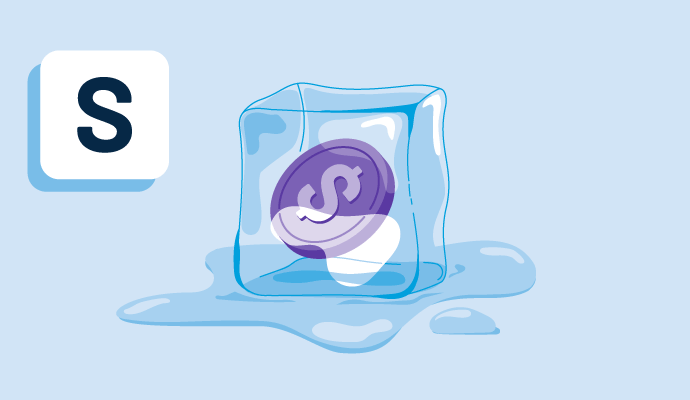What is a salary freeze?
A salary freeze, sometimes called a pay freeze, occurs when a company suspends salary or wage increases for a specific period of time, usually due to financial constraints. Organizations enact salary freezes in hopes of improving the bottom-line results by keeping fixed costs under control.
A company may implement a salary freeze for many reasons. One of the main reasons being a considerable dip in the economy, causing a recession. Other reasons to freeze employee salaries include an internal restructuring through mergers or acquisitions and a pay market practice initiative due to a re-evaluation of pay bands.
The goal of a salary freeze is to limit expenses in difficult times to improve the company's bottom line. While a salary freeze is never ideal, it can be especially detrimental to employee morale, and a company may end up losing valuable talent. Compensation management software is used during a salary freeze to adjust policies and pause pay adjustments. Once the freeze is over, these tools can help facilitate diverse bonus structures for employees.
Types of salary freezes
When carrying out a salary freeze, an organization can choose between two types. These two types are:
- Freeze basic salary: The implication that only an employee’s basic salary would be held constant. Fixed pay elements would be reviewed to eliminate potential tension amongst employees and help boost morale.
- Freeze guaranteed pay: When an organization freezes all items tied to basic salary. When choosing this type, a company should do its best not to prolong this situation so that retention doesn’t become a challenge.
Benefits of a salary freeze
Despite the fact that a salary freeze can be a difficult time for an organization, there are a few benefits to the practice. Some key benefits include the following:
- Improve bottom line: Cutting expenses with a salary freeze can boost an organization's net income.
- Evade a shutdown: A salary freeze can keep a company afloat and in business for as long as possible.
- Avoid layoffs: Lowering payroll costs during a salary freeze helps organizations avoid laying off employees. This is especially beneficial if the economy is in a recession and there aren’t many jobs for laid-off employees.
- May only affect top employees: Depending on the severity of a company’s financial situation, management can choose to instill a salary freeze only for senior-level or C-suite employees.
- Show employee appreciation: A salary freeze can present an opportunity for companies to show they appreciate their employees in other ways. In addition to avoiding layoffs, managers can find other new ways to thank team members for their hard work.
Salary freeze best practices
There are best practices organizations should follow when going through a salary freeze to ensure it’s as painless for employees as possible. These are:
- Proper communication with employees: Managers need to properly communicate with employees that they will not be receiving a raise or merit pay – especially top-performers whose continued outperformance will be needed to get the company back on track. This requires empathy and understanding.
- Transparency with employees: Managers need to be transparent with employees as to why the decision to enact a salary freeze was made. Staff members need to understand that a salary freeze is both necessary and temporary.
- Provide alternative compensation means: An organization may want to consider other ways to compensate employees. This could be more flexible hours, more paid time off, telecommuting privileges, or other small perks. Doing so helps employees still feel appreciated and valued by the organization.
How to communicate a salary freeze
When an organization has decided to instate a salary freeze, proper communication can make or break how employees react. Even if employees are given information about the salary freeze, like an all-hands meeting, it’s still best to send written communication that can be referenced at any time.
Consider using this template when communicating a salary freeze:
[Date]
Dear employees,
The [COMPANY X] leadership and executive teams have completed a review of our business goals, processes, and objectives in an effort to lower our expenses, increase revenue, and protect the future well-being of [COMPANY X] and its employees.
As a result of our findings and to manage assets, we have come to the difficult conclusion to evoke a salary freeze for all employees until further notice.
Please know that this was an extremely difficult decision to make, and we understand the impact this has on our employees. We considered several other alternatives and options, and the choice of a salary freeze was the best option at this time.
The executive team will continue to monitor our finances and revisit the potential for compensation increases each quarter moving forward. We firmly believe this will put [COMPANY X] in a better position for a solid financial future.
We at [COMPANY X] appreciate all of your hard work and we hope to have your support as we move forward and strive for business success. If you have any questions, please meet with your manager or contact the human resources team for further information.
Sincerely,
CEO/President

Mara Calvello
Mara Calvello is a Content and Communications Manager at G2. She received her Bachelor of Arts degree from Elmhurst College (now Elmhurst University). Mara writes customer marketing content, while also focusing on social media and communications for G2. She previously wrote content to support our G2 Tea newsletter, as well as categories on artificial intelligence, natural language understanding (NLU), AI code generation, synthetic data, and more. In her spare time, she's out exploring with her rescue dog Zeke or enjoying a good book.

